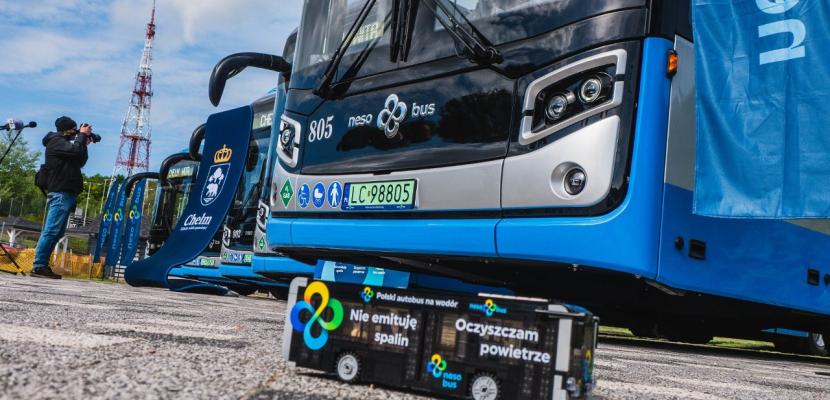
Subsidy Use by City of Chełm for Zero-Emission Hydrogen Bus Fleet

About this good practice
The City of Chełm addressed the challenge of modernizing its public transport system to meet national legal requirement for low-emission fleets and to improve urban mobility. Triggered by the Polish Act on Electromobility and alternative fuels, the city aimed to provide eco-friendly transport. Since 2019 residents and tourists can use public transport in the city for free.
To achieve this, Chełm utilized a 90% subsidy from the National Fund for Environmental Protection and Water Management under the “Green Public Transport (Phase I)” program. In 2021, the city applied for funding and signed a co-financing agreement. A tender in 2023 led to a contract with PAC-PCE for the delivery of 26 hydrogen-powered buses. The first 5 buses arrived in April 2025, with full delivery expected by October.
To support the operation of the fleet, an agreement was signed with PAK-PCE, which will be responsible for the hydrogen supply. The company will deliver a total of 430,000 kilograms of hydrogen, with a guaranteed minimum of 322,500 kilograms. Refueling will take place at a mobile, containerized hydrogen refueling station.
The main stakeholders include the City of Chełm, the municipal company Chełmskie Linie Autobusowe, the National Fund, and the EU. Beneficiaries are local residents, tourists, and the broader Lubelskie Voivodeship. Since introducing free transport in 2019, passenger numbers have increased by 30%, reducing private car use by ca 2%. The city offers also city bikes for free.
Resources needed
The project is co-financed by the National Fund for Environmental Protection and Water Management under Priority Program No. 3.9 'Atmosphere Protection – Green Public Transport (Phase I)'."
Total project value: EUR 26,178,000
Amount of co-financing: EUR 23,511,000
Evidence of success
The City successfully used a subsidy to invest in H2 buses, aiming to expand the share of zero-emission vehicles in public transport fleet, in line with requirements for local government units with more than 50,000 inhabitants. This initiative demonstrates how local authorities can effectively implement national and EU regulations on electromobility. Chełm is steadily progressing towards zero-emission transport goals, positioning itself as a model for sustainable urban mobility transformation.
Potential for learning or transfer
This practice is a valuable example for other EU regions, as it demonstrates how a local government—Chełm in the Lubelskie Voivodeship—effectively planned and successfully implemented a transition to a hydrogen-powered bus fleet using national subsidies. It highlights key success factors such as strategic planning, needs assessment, securing funding, and managing procurement and fuel supply despite lacking hydrogen infrastructure and the uncertainties caused by evolving national regulations. The City of Chełm overcame regulatory and logistical challenges, showing how to act proactively in the absence of national guidelines and amid frequently changing legislation. The practice also illustrates how to build a local hydrogen economy and offer free and ecological public transport to residents and tourists. It provides a transferable model for municipalities aiming to meet EU and national climate goals through innovative, low-emission transport solutions.

